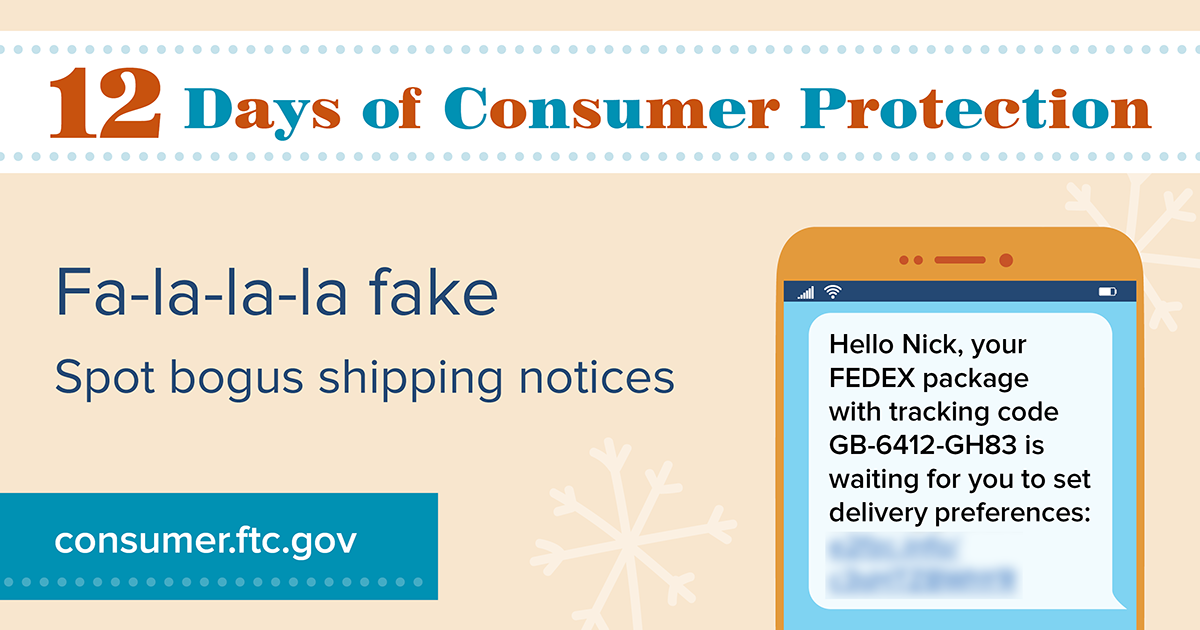On the 5th day of Consumer Protection, you get an email or text message that’s supposedly from UPS or FedEx, complete with one of their logos — and it seems legit. It says your item is ready to ship but you need to update your shipping preferences. But here’s the lump of coal: the message is bogus and there is no package. Scammers are phishing for your information. And if you click on a link or download the attachment, you’re likely to end up with a virus or malware on your device that steal your identity and your passwords.
Avoid any holiday reindeer-livery confusion and follow these tips:
- The weakest link. Don’t click. If you get an unexpected email or text message, don’t click on any links — or open any attachments. If you think it could be legit, contact the company using a website or phone number you know is real. Don’t use the information in the email or text message.
- Mal where? Guard against malware. Make sure you keep your software up to date. Set your security software, internet browser, and operating system (like Windows or Mac OS X) to update automatically.





